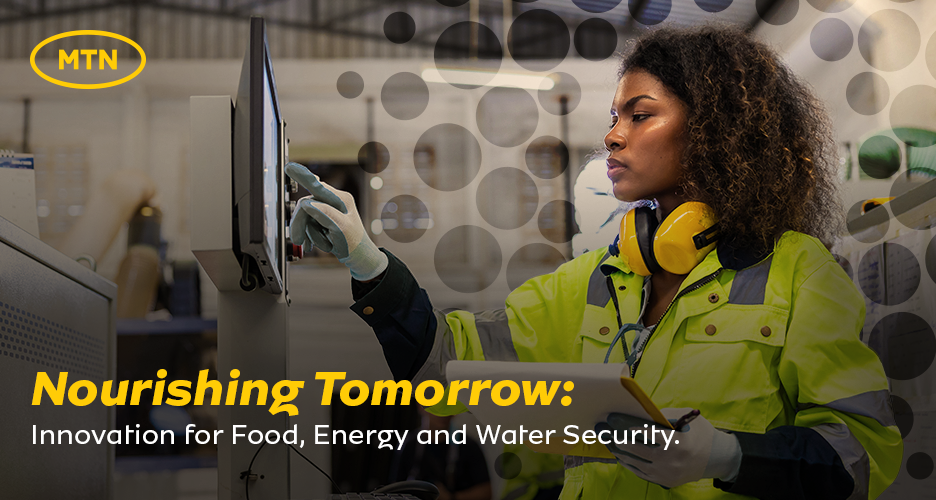
- Home
- About Us
- Sustainability
- Investors
- News
- People & Culture
-
Regions

Why investing in eco-entrepreneurship is the smartest bet for Africa’s resilient future
Africa is the youngest continent in the world, with over 60% of its people under the age of 25. This demographic dividend, if nurtured, has the power to reshape our economies, societies, and planet. Yet, it is also the most vulnerable generation growing up amidst rising food insecurity, climate shocks, water scarcity, and an energy transition that is both urgent and uneven. How Africa responds to these intertwined challenges will define whether this century becomes one of resilience and shared prosperity, or one of exclusion and fragility.
The Africa PachiPanda Challenge, now in its second year, is MTN’s bold response to this reality. This pan-African youth innovation platform empowers eco-entrepreneurs to design solutions at the intersection of the Food-Energy-Water (FEW) Nexus, the foundation of resilient livelihoods. The theme for 2025, “Nourishing Tomorrow: Innovations for Food, Energy and Water Security”, is not simply a slogan. It is a call to action in a region where:
These numbers are not just statistics. They are daily realities shaping the futures of young people who, paradoxically, are also the ones driving the solutions.
This year, the Challenge expands to five countries: Nigeria, South Africa, Zambia, Cameroon and, for the first time, Uganda. Uganda’s inclusion is particularly significant. Known as the “Pearl of Africa,” Uganda faces rising climate variability, with floods and droughts threatening agriculture. For Uganda, the Food-Energy-Water nexus is a lived reality, making youth innovation vital for resilience, livelihoods, and inclusive growth.
What makes PachiPanda different is its dual focus: a continental framework that galvanises youth around the FEW Nexus, and local environmental challenge statements that reflect the specific realities of each market. From tackling the impacts of unpredictable weather in Nigeria and pioneering green entrepreneurship in Zambia, to enhancing water conservation in South Africa and developing sustainable energy solutions in Cameroon, and now resilience-driven food and energy solutions in Uganda, the Challenge recognises that solutions must be both scalable and locally rooted.
In 2024, we received 2,484 applications and developed 53 finalists through the in-country programmes. Among the standout innovators, chosen by a distinguished panel of judges for its outstanding scalability and measurable impact, Moses Afopezi of Cameroon claimed first prize for his project AgricFresh, a tech-enabled platform designed to reduce post-harvest loss by professionalising farm management and enhancing market access.
Africa’s youth bring more than energy and ideas. They bring a lived understanding of the problems and a willingness to challenge orthodoxies. With the right enablers, access to knowledge and skills, mentorship, networks, and catalytic funding their innovations can transform not just communities but entire value chains. Just as importantly, enabling policies that promote renewable energy, sustainable agriculture, and water conservation will determine whether such solutions remain prototypes or become scaled engines of growth.
At MTN, we believe that technology, connectivity and youth innovation together form the most powerful levers of change. Through PachiPanda, in partnership with the World Wide Fund for Nature (WWF), and others, we are building a platform where ideas can mature into enterprises, and where eco-entrepreneurs can be recognised as leaders of Africa’s green and digital transformation.
This is an investment for a sustainable future that works. By nourishing tomorrow, these young innovators are not only feeding families, powering homes, and conserving water, they are also strengthening Africa’s competitiveness in a world where sustainability is fast becoming a driver of trade, capital flows, and consumer choice.
The inaugural challenge showed us what is possible. The 2025 edition raises the bar: bigger ambition, stronger partnerships, and a sharper focus on the interconnected systems that sustain life. We must listen to these young voices, back their ideas with resources, and integrate their innovations into national and continental development strategies.
Because the truth is simple: if Africa’s youth win, Africa wins. And if Africa wins, the world inherits not only a resilient continent but also a generation that has proven that hope, ingenuity, and courage can indeed nourish tomorrow.
[1] Food and Agriculture Organisation 2022 report
[2] United Nations Sustainable Development 2025
[3] World Economic Forum 2023